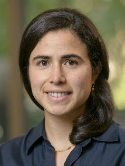SARS-CoV-2 vaccination in the first year after hematopoietic cell transplant or chimeric antigen receptor T-cell therapy: A prospective, multicenter, observational study Journal Article
| Authors: | Hill, J. A.; Martens, M. J.; Young, J. A. H.; Bhavsar, K.; Kou, J.; Chen, M.; Lee, L. W.; Baluch, A.; Dhodapkar, M. V.; Nakamura, R.; Peyton, K.; Howard, D. S.; Ibrahim, U.; Shahid, Z.; Armistead, P.; Westervelt, P.; McCarty, J.; McGuirk, J.; Hamadani, M.; DeWolf, S.; Hosszu, K.; Sharon, E.; Spahn, A.; Toor, A. A.; Waldvogel, S.; Greenberger, L. M.; Auletta, J. J.; Horowitz, M. M.; Riches, M. L.; Perales, M. A. |
| Article Title: | SARS-CoV-2 vaccination in the first year after hematopoietic cell transplant or chimeric antigen receptor T-cell therapy: A prospective, multicenter, observational study |
| Abstract: | Background. The optimal timing of vaccination with severe acute respiratory syndrome coronavirus 2 (SARS-CoV-2) vaccines after cellular therapy is incompletely understood. The objectives of this study are to determine whether humoral and cellular responses after SARS-CoV-2 vaccination differ if initiated <4 months versus 4–12 months after cellular therapy. Methods. We conducted a multicenter, prospective, observational study at 30 cancer centers in the United States. SARS-CoV-2 vaccination was administered as part of routine care. We obtained blood prior to and after vaccinations at up to 5 time points and tested for SARS-CoV-2 spike (anti-S) IgG in all participants and neutralizing antibodies for Wuhan D614G, Delta B.1.617.2, and Omicron B.1.1.529 strains, as well as SARS-CoV-2–specific T-cell receptors, in a subgroup. Results. We enrolled 466 allogeneic hematopoietic cell transplantation (HCT) (n = 231), autologous HCT (n = 170), and chimeric antigen receptor T-cell (CAR-T-cell) therapy (n = 65) recipients between April 2021 and June 2022. Humoral and cellular responses did not significantly differ among participants initiating vaccinations <4 months versus 4–12 months after cellular therapy. Anti-S IgG ≥2500 U/mL was correlated with high neutralizing antibody titers and attained by the last time point in 70%, 69%, and 34% of allogeneic HCT, autologous HCT, and CAR-T-cell recipients, respectively. SARS-CoV-2–specific T-cell responses were attained in 57%, 83%, and 58%, respectively. Pre–cellular therapy SARS-CoV-2 infection or vaccination and baseline B-cell count were key predictors of post–cellular therapy immunity. Conclusions. These data support mRNA SARS-CoV-2 vaccination prior to, and reinitiation 3 to 4 months after, cellular therapies with allogeneic HCT, autologous HCT, and CAR-T-cell therapy. © The Author(s) 2024. Published by Oxford University Press on behalf of Infectious Diseases Society of America. |
| Keywords: | adult; aged; middle aged; young adult; major clinical study; united states; prospective study; hematopoietic stem cell transplantation; t lymphocyte receptor; immunoglobulin g; multicenter study; vaccination; allogeneic hematopoietic stem cell transplantation; cell count; observational study; autologous hematopoietic stem cell transplantation; vaccine; transplant; neutralizing antibody; hematopoietic cell transplant; human; male; female; article; chimeric antigen receptor t-cell immunotherapy; severe acute respiratory syndrome coronavirus 2; coronavirus disease 2019; covid-19; sars-cov-2; coronavirus spike glycoprotein; sars-cov-2 vaccine |
| Journal Title: | Clinical Infectious Diseases |
| Volume: | 79 |
| Issue: | 2 |
| ISSN: | 1058-4838 |
| Publisher: | Oxford University Press |
| Date Published: | 2024-08-15 |
| Start Page: | 542 |
| End Page: | 554 |
| Language: | English |
| DOI: | 10.1093/cid/ciae291 |
| PUBMED: | 38801746 |
| PROVIDER: | scopus |
| PMCID: | PMC11327798 |
| DOI/URL: | |
| Notes: | The MSK Cancer Center Support Grant (P30 CA008748) is acknowledge in the PDF -- Source: Scopus |
Altmetric
Citation Impact
BMJ Impact Analytics
Related MSK Work







